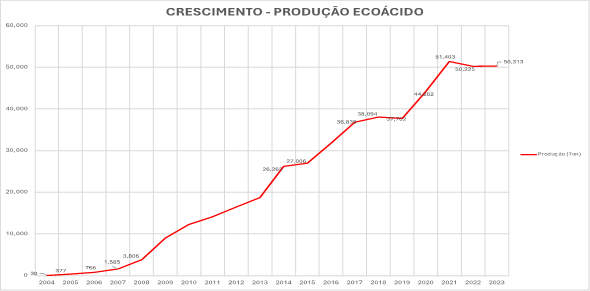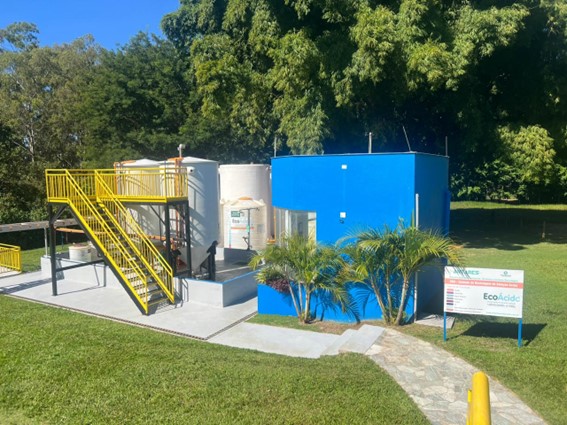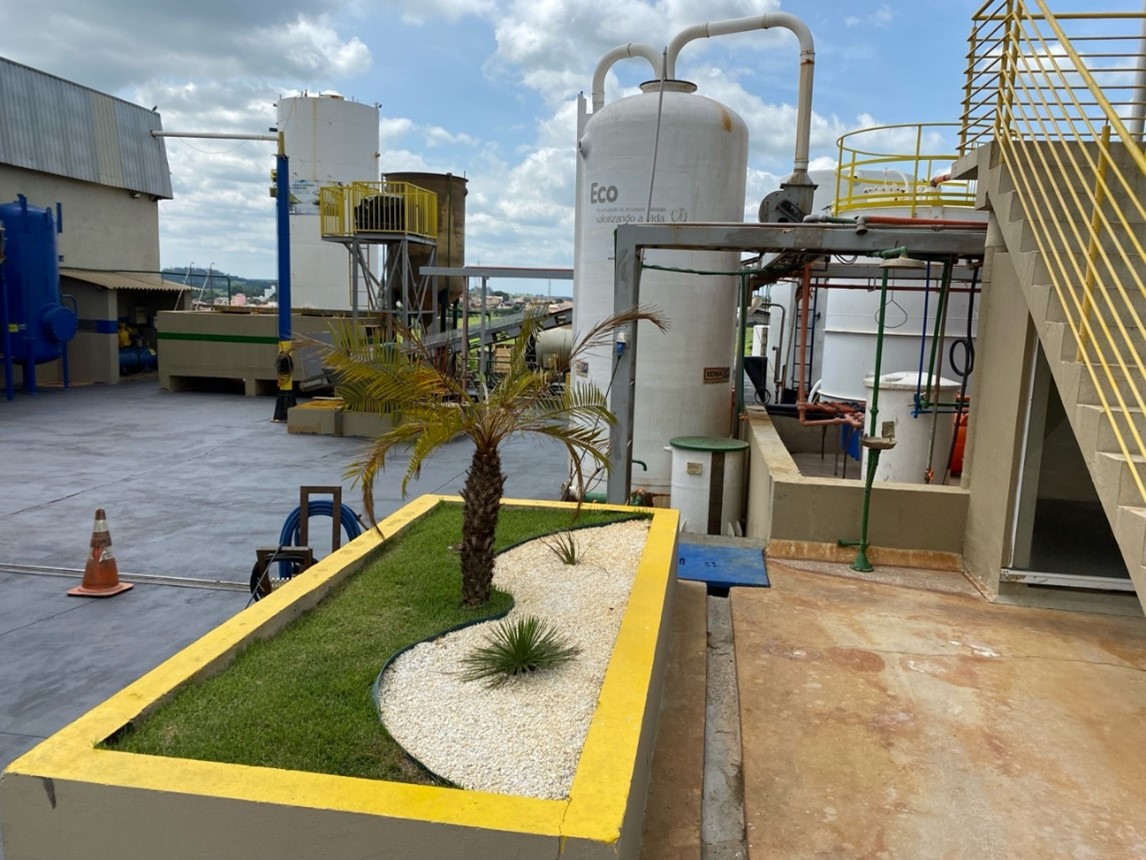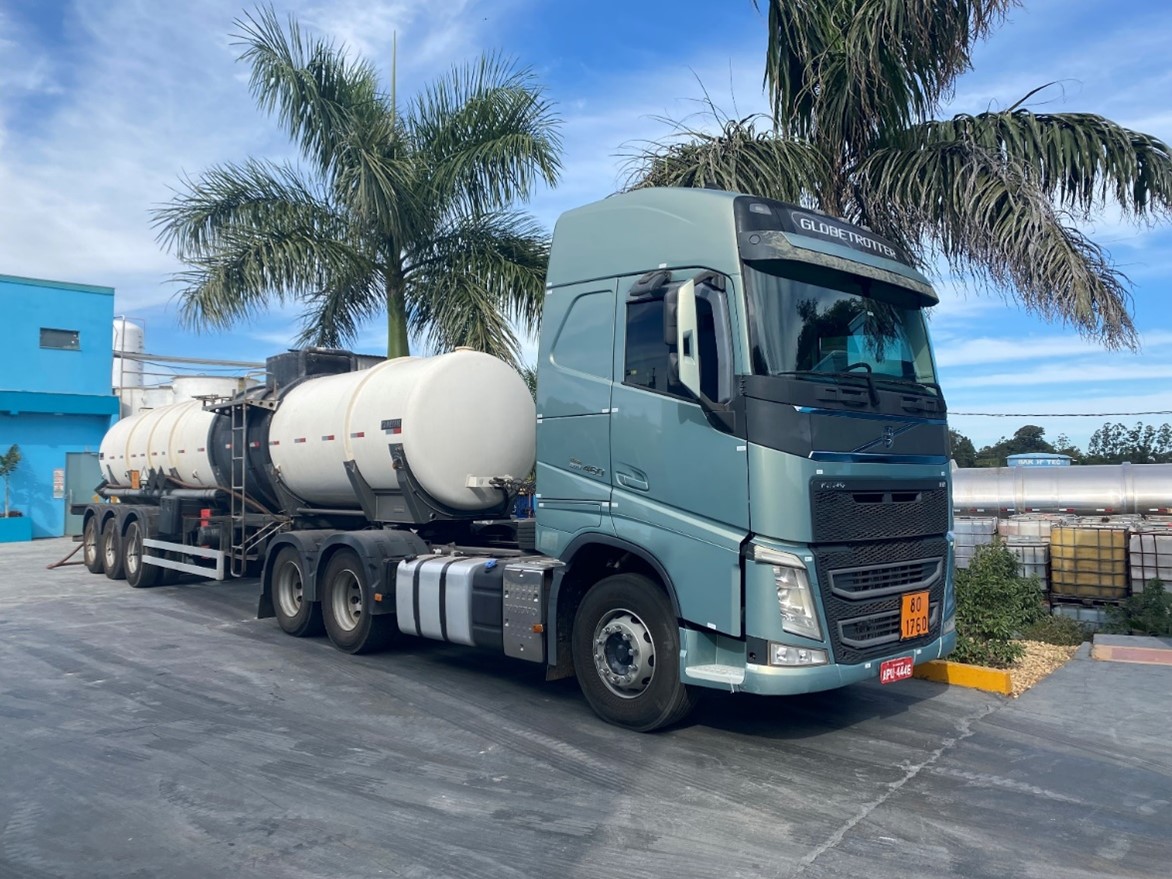Information
• 10/14/2024ECOÁCIDO - ACID RECYCLING PROCESS AT SECONDARY LEAD SMELTERS
BATTERY RECYCLING SPECIAL

The Ecological Acid Solution Recycling Process ECOÁCIDO was developed in the early 90s by ANTARES to treat residual electrolyte solution in secondary lead smelting companies and battery recyclers in Brazil.
In these 20 years in the market, our company has grown a lot and started to develop new technologies and work with other types of acid such as nitric and hydrochloric acid, as well as various caustic sodas and sulfates.
Today we have 15 treatment units in Brazil and we recycle more than 4,200 m3 of various acids per month, promoting the recovery of millions of liters of water and minerals for the production of new acids, preserving nature and natural resources within strict ecology and circular economy concepts.
During these years, Antares' EcoÁcido project won several environmental awards in Brazil, such as:

1st Place – ANA 2014 Award – National Water Agency – Brasília-DF
1st Place – ANA 2014 Award – National Water Agency – Brasília-DF
1st Place – 9th Brazil Environmental Award from the American Chamber of Commerce – R. de Janeiro - RJ
1st Place – 9th. FIESP Award – Federation of Industries of SP – São Paulo - SP
1st Place – 12th Ozires Silva Award – Curitiba - PR
4 Winning Projects of the Brazilian Notice for Technological Innovation – SENAI Brasil;
Winner of the Brazil Innovate UK Notice - Newton Fund & EMBRAPII

Basically, throughout the world, lead-acid batteries are fully recycled, that is, all of their metallic content and plastic constituents are separated, recycled and reused in the manufacture of new batteries.
The only constituent of the battery that was not systematically recovered was the electrolyte solution contained therein. This solution basically consists of sulfuric acid and water contaminated by heavy metals. It was treated, neutralized and discarded, or even sometimes disposed of inappropriately in nature.
This methodology, however, underwent a major advance with the emergence of the Antares ECOÁCID Project, which also began to recycle the electrolyte solution from used batteries, thus closing the full cycle of reuse of the lead-acid battery.
The ECOÁCIDO Project prevents environmental impacts and potential damage to nature and human health, thereby benefiting both the environment with a cleaner and safer form of production, and battery recycling companies with significant reductions in reagent costs and sludge deposition .
In addition to these benefits, we can also mention:
* Recovery of lead and other metals retained in the process that are returned to recyclers.
* Minimization of industrial effluent releases;
* Better reuse of effluents treated in the company;
* Minimizing the risks of contamination of soil and groundwater;
* Minimizing the risks of groundwater salinization;
* Reduction of problems with neutralization salt;
* Adaptation of treated effluents to current government regulations;
* Minimization of process losses;
* Minimization of waste generation;
* Greater efficiency and profitability of industrial processes;
* Reducing operating costs and maximizing financial return;
* Preservation of natural resources, since the raw material comes from recycled sources.

Brazil is one of the world's largest producers of lead-acid batteries and recycling them is an even more important procedure in our country, given that Brazil does not have active lead mines and practically all the lead used here is recirculating, or In other words, it is used and recycled countless times.
Due to legal requirements and also for economic reasons, whenever we buy a new battery, we must leave the used battery at the distributor, so that it can be recycled and used as raw material by recycling companies to manufacture new batteries.
Before the ECOÁCIDO Program, the used electrolyte solution received by recyclers was neutralized with strong alkaline (caustic soda or lime) and discarded into public sewage networks, rivers, streams, etc.
The ECOÁCIDO Project revolutionized the methodology adopted until then. In this way, battery recycling industries now have a new sustainable and efficient way of transforming toxic waste into recovered raw material, ready to be reused in other processes.
The methodology applied in the ECOÁCIDO project consists of treatment without a drop in concentration, eliminating heavy metals through physical-chemical and filtration processes.

Today, millions of liters of acid that would otherwise be neutralized and discarded are recovered annually through the process. Furthermore, tons and tons of neutralization sludge that would have been released for disposal in industrial landfills and many more tons of CO2 (carbon dioxide) that would have been released into the atmosphere, thus increasing the greenhouse effect, were no longer generated. In this way, the ECOÁCIDO process promotes the transformation of industrial waste, that would normally be treated and neutralized, into recovered raw material.
Almir S. Trindade, Eng. de Minas, Especialista em Eng. Ambiental | Mining Engineer, Environmental Eng. Specialist
Davi G. Trindade, Ph.D. | M.Sc. | MBA | B.Sc
Daniel G. Trindade, Ph.D. | M.Sc. | B.Sc.
ANTARES TECNOLOGIA | www.antares.eco.br | +55 (33) 99197-9777





